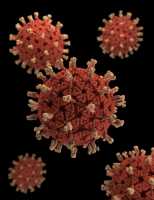MedicalResearch.com Interview with:
Dr. Matthieu Domenech de Cellès PhD
Biostatistics, Biomathematics, Pharmacoepidemiology, and
Infectious Diseases Unit, Institut Pasteur, Inserm U1181,
University of Versailles St-Quentin-en-Yvelines,
Versailles, France
MedicalResearch.com: What is the background for this study? What are the main findings?
Response: Most high-income countries now use acellular pertussis vaccines (called DTaP, which are sub-unit vaccines based on purified antigens of the bacterium
Bordetella pertussis) to protect children against pertussis. Although clinical trials demonstrated the short-term effectiveness of DTaP vaccines, there was a growing concern that the duration of protection they conferred was not very long. Those concerns were mostly based on the results of a number of epidemiological studies, which showed that the relative risk of contracting pertussis increased substantially over time, typically by 20–40% every year since last vaccination.
Although such increases seem high, it was not immediately obvious how to interpret them—the more so because pertussis epidemiology is complex.
In our study, we developed mathematical models of pertussis epidemiology to try to understand what the results of recent epidemiological studies really meant about the effectiveness and the duration of protection of DTaP vaccines. The most interesting—and perhaps counterintuitive—finding of our study was that those results are fully consistent with highly effective DTaP vaccines, which confer long-term protection. This is a consequence of the fact that pertussis is highly contagious and that the immunity conferred by DTaP, though very high, is not perfect.
(more…)



























